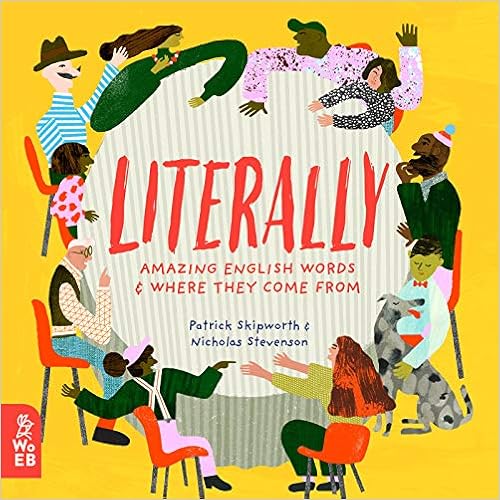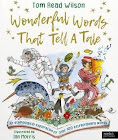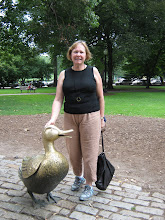"Here is a fun tidbit that blows my mind every time I think about it. Research suggests that humans use the same three to 5 000 words in everyday conversation. Sound like a lot? Not when you consider there’s nearly 200 000 words in the English language. Books are like our gateway to this massive amount of words, and the more we understand their meanings and nuances, the more likely we are to speak or write them." Joanne Henderson-Klabe
Broadening our vocabulary and thus the range of what we understand comes through repetition of seeing or hearing a word in context.
The Book Week slogan allows for teaching wonderful vocabulary that children may not know through everyday speech. They are words associated with books, reading, science, procedure...Tier 2 and 3 words if we use English K -12 jargon. As teachers we are supposed to ask ourselves
• How generally useful is the word?
• How does the word relate to other words, to the ideas that students know or have been learning?
• What does the word bring to a text or situation?
Can't we just read quality literature and explain any word that students might ask or wonder about? How else do they come across new words, words to use in their own writing, words that just sound good and they want to use to impress? I want children and words to flourish hand in hand.

Year 1 used to do an author study of Eric Carle when they studied minibeasts. They became invested in his illustration process, his themes, especially change and how exciting and inspiring it can be. Using words like metamorphisis, chrysalis, cacoon, phosphorescence encourage students to explore new words, practise saying them and add them to their vocabulary.
This year while doing a See Think Wonder routine with a year two using a series of photos of hollows in trees, I was surprised how few of them used or knew the word 'hollow'. They knew the photos depicted 'holes in trees', but when we went on to explore A Hollow is a Home by Abbie Mitchell they took great pride in using the word 'hollow' appropriately. Next time I will also be able to use Life in a Hollow by David Gullan as well. When Year 2 look at trees and how large their role is in ecosystems there's a new set of words they need. Some haven't heard of seedlings or saplings, but if they had read stories such as Little Sap by Jan Hughes, A Tree is a Home by Pamela Hickman or All About Trees by Polly Cheeseman then when it comes to reading factual books such as A Hollow is a Home their background knowledge and vocabulary is already to use.

Of course READ GROW INSPIRE hasn't been exhausted. There are so many 'rabbit holes' to go down, but this is probably enough for me, because just as I say a published unit and its chosen resources are only as good as the author's knowledge and experience, and that you need to 'own something' or 'have made it your own' to teach it well, it is time to do some planning of your own. Hopefully you will have access to some of these books. I realise the library I work in is not your average school library. The staff and students here are very well resourced. Sadly with the new more prescriptive syllabus, the library has become under utilised.
READ as many picture books as you can
GROW your reading skills, your vocabulary and your knowledge
INSPIRE yourself to read more, grow more and do things a little differently!




























